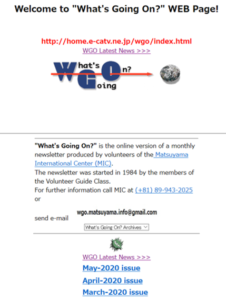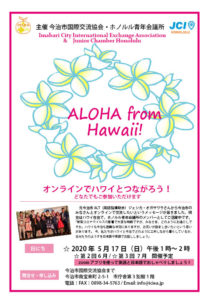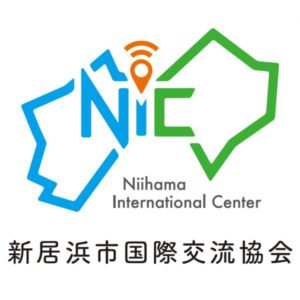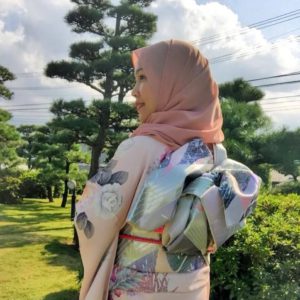外国人のみなさんへ
外国人のみなさんへ
【COVID-19】「特別(とくべつ) 定額(ていがく) 給付金(きゅうふきん)」(100,000円(えん))の 書類(しょるい)の 書(か)き方(かた)
総務省(そうむしょう) HP(にほんご/English/简体中文/繁体中文/한국어/Tiếng Việt)
1. お知(し)らせ【総務省(そうむしょう) HP】
English/中文・简体字/中文・繁体字/한국어/Tiếng Việt/Filipino/Português/Español/Bahasa Indonesia/ภาษาไทย/नेपाली [PDF]
※5/20に ルール(るーる)が 変(か)わり、100,000円(えん)を もらえる 人が 増(ふ)えました。
3つ(みっつ)の NPO団体(だんたい)が、いろいろな 言葉(ことば)の 説明(せつめい)を 作(つく)りました。
やさしい にほんご/English/中文・简体字/한국어/Português/Español/Tiếng Việt/Tagalog/नेपाली/Bahasa Indonesia/ภาษาไทย/မြန်မာဘာသာ/العربية [PDF]
【NPO法人(ほうじん) 多言語 センター(たげんご せんたー) FACIL HP】
2. 書類(しょるい)の 書(か)き方(かた)の 見本(みほん)【総務省(そうむしょう) HP】
English/中文・简体字/中文・繁体字/한국어/Tiếng Việt/Filipino/Português/Español/Bahasa Indonesia/ภาษาไทย/नेपाली [PDF]
※郵便(ゆうびん)で 送(おく)る 時(とき)の 書類(しょるい)
English/中文・简体字/中文・繁体字/한국어/Tiếng Việt/Filipino/Português/Español/Bahasa Indonesia/ภาษาไทย/नेपाली [PDF]
3.書類(しょるい)の 書(か)き方(かた)を、動画(どうが)で 見(み)る ことが できます。
https://soeasy.tokyo/users/2174
How to fill in the application for special fixed value benefit
特别定额给付金申请书的填写方法
재난지원금 신청서 기입방법
Cách ghi giấy đăng ký để nhận trợ cấp đặc biệt
Paano pil-apan ang applikasyon para sa espesyal na maayos na benepisyo
Cara mengisi formulir pendaftaran subsidi khusus
วิธีการกรอกเอกสาร ขอรับเงินช่วยเหลือ
विशेष राहत (निश्चित रकम) लिने आबेदन फारम भर्ने तरिका
(မြန်မာဘာသာ)How to fill in the application for special fixed value benefit
Método para llenar la solicitud de beneficio de valor fijo especial
Como preencher a solicitação para o benefício de valor fixo especial
特別定額給付金申請書の記入方法(ふりがなあり)
※上記動画の当協会HPにおける使用については、(株)soeasyに許可を得ています。
4. 締切(しめき)り(いつまでに 申(もう)し込(こ)みますか)/Deadline for application【NEW!】
住んでいる 市(し)や 町(まち)で、締切(しめき)りが 違(ちが)います。 早 (はや)めに 書類(しょるい)を 送(おく)って ください。
Please check the deadlines below and apply as soon as possible.
8月(がつ) 11日(にち)(火曜日(かようび))まで/By Tuesday, August 11
八幡浜市(やわたはまし、 Yawatahama City)・大洲市(おおずし、Ozu City)・西予市(せいよし、Seiyo City)・久万高原町(くまこうげんちょう、Kumakogen Town)・松前町(まさきちょう、Masaki Town)・砥部町(とべちょう、Tobe Town)・伊方町(いかたちょう、Ikata Town)・松野町(まつのちょう、Matsuno Town)・鬼北町(きほくちょう、Kihoku Town)
8月(がつ) 12日(にち)(水曜日(すいようび))まで/By Wednesday, August 12
内子町(うちこちょう、Uchiko Town)
8月(がつ) 13日(にち)(木曜日(もくようび))まで/By Thursday, August 13
四国中央市(しこくちゅうおうし、Shikokuchuo City)
8月(がつ) 14日(にち)(金曜日(きんようび))/By Friday, August 14
愛南町(あいなんちょう、Ainan Town)
8月(がつ) 17日(にち)(月曜日(げつようび))まで/By Monday, August 17
今治市(いまばりし、Imabary City)・砥部町(とべちょう、Tobe Town)
8月(がつ) 18日(にち)(火曜日(かようび))まで/By Tuesday, August 18
松山市(まつやまし、Matsuyama City)・新居浜市(にいはまし、Niihama City)・西条市(さいじょうし、Saijo City)・上島町(かみじまちょう、Kamijima Town)
8月(がつ) 19日(にち)(水曜日(すいようび))まで/By Wednesday, August 19
伊予市(いよし、Iyo City)・東温市(とうおんし、Toon City)
8月(がつ) 20日(にち)(木曜日(もくようび))まで/By Thursday, August 20
宇和島市(うわじまし、Uwajima City)
WGO?5月号と6月号の配布をお休みします

英語情報誌WGO?は、新型コロナウイルス感染拡大防止への協力のため、レイアウト作業を中止しております。
それに伴い、5月号と6月号のの印刷版の配布をお休みします。
配布がお休みの間もWEB版は、これまで通り、掲載を続けます。
最新の情報は下記URLからご確認ください。
【”WGO?”って何?】
WGO?は、松山市及び松山市周辺市町在住の外国人や外国人旅行者向けに英語で書かれた無料の情報誌です。
ボランティアによって毎月発行されており、EPIC、MIC、大学、書店、駅等で手に入れることができます。
■WGO?のホームページ:
http://home.e-catv.ne.jp/wgo/
★問い合わせ先:WGO?
Email: wgo.matsuyama.info★gmail.com ※★を@に変えてください。
「オンラインでハワイとつながろう!」~ ALOHA from HAWAII ~ 参加者募集!

元今治市ALT(英語指導助手)で、ハワイ在住のジェシカ・オガサワラさんから今治市のみなさんとオンラインで交流したいというメッセージが届きました。
彼女は、現在、ホノルル在住でJCI(青年会議所)ホノルル支部の主要メンバーとして活躍しています。
自粛が続くこの時期だからこそ、ハワイの素敵な映像と、そこに住む人との交流で癒されてみませんか。
どうぞ、お気軽にお申し込みください。
■日 時:5月17日(日)13:00~14:00(日本時間)
※ハワイ時間では5月16日(土)18:00~19:00
■参加アプリ:ZOOM使用
※ミーティング中は小グループに分けます。
大人から子どもまで、日本語だけの方から英語が堪能な方まで、どなたでもご参加いただけます。
■対 象:パソコンかスマホをお持ちの方で、インターネット環境があれば、参加いただけます。
■そのほか:ZOOMを使用したことが無い方はお気軽に下記までお問い合わせください。
第2回(6月)、第3回(7月)を予定しています。
★問い合わせ先:今治市国際交流協会(ICIEA)
TEL: 0898-34-5763 Email: info★iciea.jp ※★を@に変えてください。
新居浜市国際交流協会 ホームページリニューアル のご案内
新居浜市国際交流協会では、ホームページをリニューアルいたしました。
今回のリニューアルでは、ご利用の皆さまにより使いやすく、よりわかりやすいホームページを目指し、デザインを一新しています。
これからも内容の充実を図り、より良いホームページの提供を目指してまいりますので、今後ともよろしくお願いいたします。
なお、ホームページのリニューアルにともない、URLが変更になりました。
ブラウザの「お気に入り」などに登録されている場合は、新しいページのURLへの登録変更をお願いいたします。
■新居浜市国際交流協会ホームページ:
https://kokusai.city.niihama.ehime.jp/
★問い合わせ先:新居浜市国際交流協会
TEL: 0897-65-1579 FAX: 0897-65-3157
メッセージ Message
瞬く間に半年が過ぎて行きました。令和最初の夏、熱気溢れる「男祭り」で有名なこの新居浜市に国際交流員として着任した日を今でも覚えています。漂うみかんの香り、湿った夏の空気、次から次へと上陸した台風、どれもインパクトが強かったのですが、何より印象に残ったのは、それらに負けない地元の人々の温かさと優しさでした。行く先先で「愛顔」で迎えられて、愛媛の皆様の温かい歓迎が心に響きました。これがいわゆる日本の「おもてなし」というものなのでしょうか?
「お・も・て・な・し」という言葉は、テレビアナウンサーの滝川クリステルさんが2013年に国際オリンピック委員会(IOC)の総会で発言したことから、世界に広まりました。オリンピックに向けて、日本がより多くの外国人観光客を迎え入れるために具現化されたこの素晴らしいサービス精神は、都会から地方まで、日本全国で味わうことができます。海外から来たお客様が日本を最大限満喫できるように様々なイベントや企画をたてたり、また、皆の安全が確保できるように外国人のための防災対策などに取り組んだり、地方行政や地域コミュニティが一生懸命歓迎しようとしたりしているのをみて、非常に感動しました。
……日本も変わりましたね。
私が日本に留学しに来たのは、2007年、春のことでした。当時、外国人の数は今ほど多くなくて、その珍しさからなのか、登録上で「エイリアン※」として分類されていました。特に、私のようなヒジャーブを被っている東南アジアのムスリム女性は、どこに行っても注目されて、時には警戒されて、コミュニティに溶け込むことはなかなか難しかったです。世界中で起こっていたテロ事件の影響で、テレビに映っている悪い人たちと似た外見を持つ者が恐れられるのも無理のないことかもしれませんが、お互いの国や文化、宗教などに対する理解が足りなかったことから生まれたスティグマを打ち破ることができなかったのはとても悔しかったです。これはもちろん、美しい思い出に満ち溢れた留学時代のごく一部の経験に過ぎませんが、この経験があったからこそ、国際交流員としての今の自分がいます。
日本にいる外国人の数は7年連続増加していて、新居浜のような小さなまちでさえ、約1,400人にのぼる外国人が在住しています。これは、1、2週間で帰国する「お客様」ではなくて、今現在、一緒の職場で働いている「同僚」、一緒のアパートに住んでいる「お隣さん」の数を示しています。果たして日本は、こんな多くの外国人をコミュニティに受け入れる覚悟はできているのでしょうか?知らない外国人が増えているのは、地元の方々にとって非常に不安なことだと思いますが、外国人を代弁して心の声を伝えますと「私たちも、慣れない国で暮らすのは不安です。」。こんな時に、一緒に暮らしていくには、どうすればいいのでしょうか?
私の母国マレーシアでは、こんなことわざがあります。“Tak kenal maka tak cinta”、「知らなければ愛せない」という意味です。人は知らないことを恐れる傾向があります。理解できないから怖い、怖いから嫌い、この繰り返しから抜け出す方法はただ一つ:お互いのことを知り、理解し合うことです。それができるのは、国や政府による政策やルールを通してではなく、私たち、市民一人一人が一歩を踏み出して、お互いのことを知ろうと思う心を持たなければはじまりません。一人一人が目と心を開けば、ゆっくりと確実に地域にも影響を及ぼして、やがて皆にとってより暮らしやすい社会を作ることができると信じています。
「人びとよ、われは一人の男と一人の女からあなたがたを創り、さまざまな種族と部族に分けた。それはあなたがたを、互いに知り合うようにさせるためである。(後略)」
第49:部屋章 第13節
(ファラ・マンスル)
※2012年まで使用されていた「外国人登録証明書」は、英語で “Certificate of Alien Registration”といいます。“Alien(エイリアン)”とは、英語で「外国人」または「異星人」という意味もあります。
※本稿で示した見解はすべて筆者個人のものであり、筆者の所属する組織の見解を示すものではありません。
Half a year has passed in a blink of an eye. I still remember the day I arrived here in Niihama, a city famous for its “Man Festival”, as the Coordinator for International Relations (CIR) on the first summer of the Reiwa Era. The lingering scent of mikan, the humid summer air, the endless typhoons, all left a strong impression, but what was even more memorable than all that, was the warmth and kindness shown by the local people. The smiles that await me everywhere I go, and the warm welcome received from the people of Ehime was truly overwhelming. Is this what they call the Japanese “omotenashi”?
The term “omotenashi”, or the Japanese hospitality, was made famous by Christel Takigawa, a Japanese TV announcer, during her presentation to the International Olympic Committee (IOC) in 2013. Today, one can have a taste of this wonderful spirit of hospitality all over the country, from the big cities to the country sides, as Japan prepares to welcome more and more foreign tourists towards the Olympics. I was very impressed to see the efforts made by the local government and local community in planning various events and projects so that visitors can enjoy Japan to the fullest, on top of implementing disaster relief measures for foreigners to ensure the safety of all during their stay.
……Japan has changed.
I first came to study in Japan in spring of 2007. At that time, the number of foreigners was not as large as it is now, and were literally classified as “aliens”. For a hijab-donning Southeast Asian Muslim girl like myself, blending into the community was especially hard, as my appearance draws attention, and at times caution, everywhere I go. Though it may be understandable for the public to fear those who look similar to the bad people they see on TV due to the impact of terrorist attacks happening all over the world at that time, the fact that we failed to overcome the stigma that was fueled from lack of understanding of each other's country, culture, and religion was extremely frustrating. This, of course, was just a fraction of my experience during university days which was filled with beautiful memories, but this experience was what led me to become the person I am today.
The number of foreigners in Japan has continued to increase for the past 7 years, where even in small cities like Niihama now has approximately 1,400 foreign nationals calling it home. This is not the number of “guests” who will return home in a week or two, but instead, is the number of “colleagues” who are currently working in the same office, and “neighbors” living in the same apartment building. I can’t help but wonder, is Japan really ready to accept so many foreigners into the community? It must be very scary for the local community to see the number of foreigners they don’t know increasing around them, but if I may voice out the inner thoughts on behalf of the foreigners, I would say that “we are scared too”. So, in times such as this, how do we learn to live together?
There’s a saying from my home country Malaysia that goes “Tak kenal maka tak cinta”, which translates as “you can’t love what you don’t know”. People tend to be afraid of what they don’t know. Not understanding leads to fear, and fear leads to hate. The only way to break out of this loop is for us to get to know and understand each other. And this cannot be done through policies or rules created by the country or the government. It can only be done when we, the people, take a step forward and nurture our hearts to learn and accept our differences. I truly believe that if each one of us learn to open our eyes, minds, and hearts, it will slowly, but surely affect the local community, and eventually create a better society for us all.
“O mankind, surely We have created you from a male and a female,
and made you into nations and tribes so that you may know each other …”
Chapter 49: Al-Hujurat, Verse 13
( By Farah Mansor )
*The opinions expressed in this article are the author’s own and do not necessarily reflect the views of organizations affiliated to the author.
- アーカイブ
-
- 2024年7月
- 2024年6月
- 2024年5月
- 2024年4月
- 2024年3月
- 2024年2月
- 2024年1月
- 2023年12月
- 2023年11月
- 2023年10月
- 2023年9月
- 2023年8月
- 2023年7月
- 2023年6月
- 2023年5月
- 2023年4月
- 2023年3月
- 2023年2月
- 2023年1月
- 2022年12月
- 2022年11月
- 2022年10月
- 2022年9月
- 2022年8月
- 2022年7月
- 2022年6月
- 2022年5月
- 2022年4月
- 2022年3月
- 2022年2月
- 2022年1月
- 2021年12月
- 2021年11月
- 2021年10月
- 2021年9月
- 2021年8月
- 2021年7月
- 2021年6月
- 2021年5月
- 2021年4月
- 2021年3月
- 2021年2月
- 2021年1月
- 2020年12月
- 2020年11月
- 2020年10月
- 2020年9月
- 2020年8月
- 2020年7月
- 2020年6月
- 2020年5月
- 2020年4月
- 2020年3月
- 2020年2月
- 2020年1月
- 2019年12月
- 2019年11月
- 2019年10月
- 2019年9月
- 2019年8月
- 2019年7月
- 2019年6月
- 2019年5月
- 2019年4月
- 2019年3月
- 2019年2月
- 2019年1月
- 2018年12月
- 2018年11月
- 2018年10月
- 2018年9月
- 2018年8月
- 2018年7月
- 2018年6月
- 2018年5月
- 2018年4月
- 2018年3月
- 2017年5月
- 2017年4月
- 2017年2月
- 2016年8月




